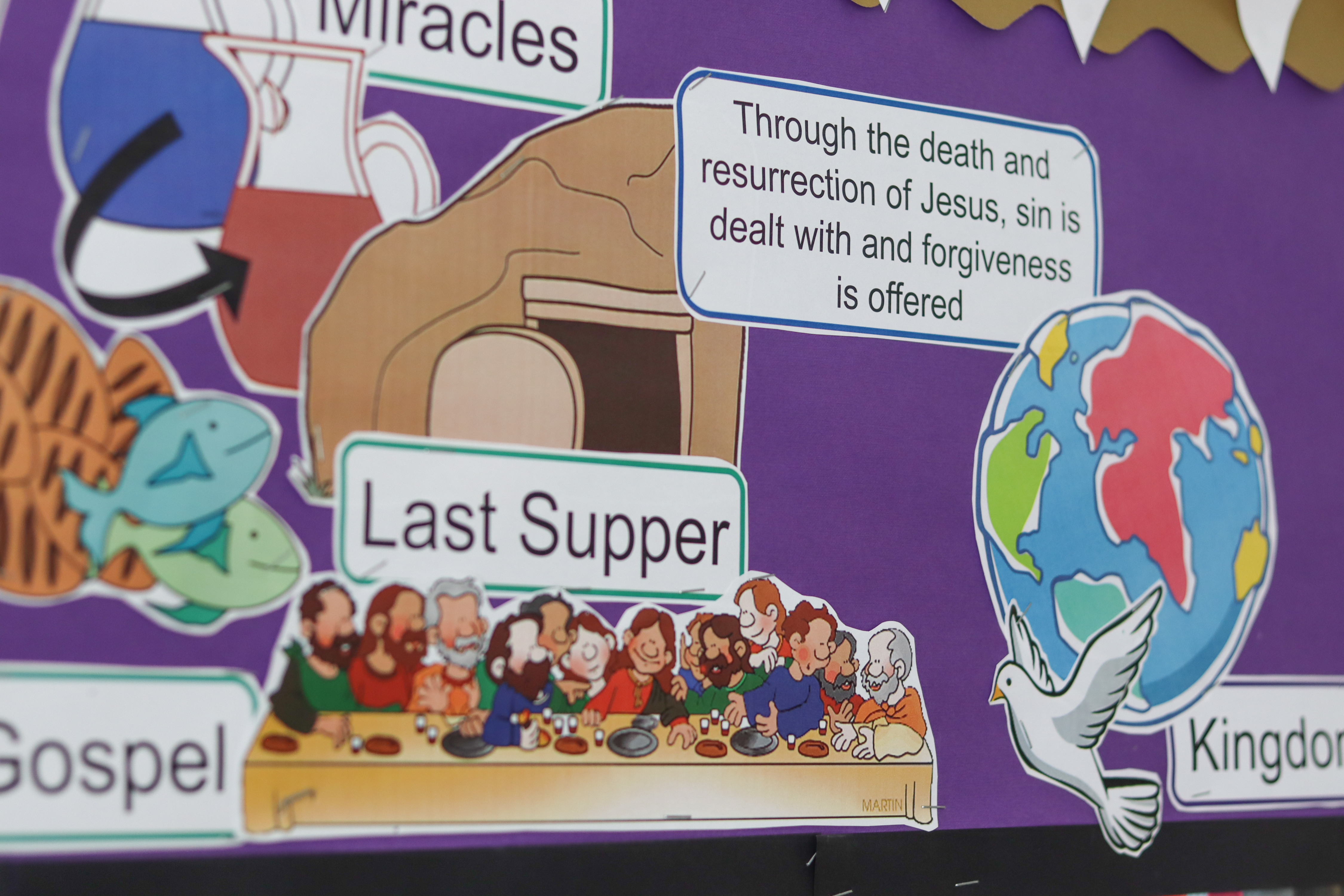
There is a shortage of RE teaching specialists nationally. Here we visit Whitburn Church of England Academy which provides training opportunities for post-graduates to teach this vital subject.
Religious Education (RE) is thriving at a school which is founded on Christian values, attitudes and expectations.
Whitburn Church of England Academy in South Tyneside covers all six major religions for pupils in Year 7 and above, enabling them to succeed at both GCSE and A-level.
It is also the Church of England’s flagship training centre in the North East for those who want to teach RE – offering a Postgraduate Certificate in Education (PGCE) course for university leavers.
After attending Durham University, Georgia Fryett (pictured above) completed her teacher training at Whitburn in 2021. She is now based at the school as a teaching specialist in RE and psychology.
“Whitburn is a fantastic place for RE,” said Georgia. “It was really inspirational for me to train here. It’s a welcoming and pleasant environment in which to work and study, with great support and excellent facilities and resources.
“I’m blessed that an opportunity came along for me to join the team here and it really is a joy to work with our dedicated students. Wherever you end up teaching, the training on offer at Whitburn will set you up for a great career in RE.”
Whitburn Academy serves both Durham and Newcastle dioceses. The PGCE course based at Whitburn will be in partnership with Sunderland University from September 2024. Previously Whitburn partnered with Durham School Centred Initial Teacher Training (SCITT). Trainees are also financially supported via a grant from the St Hild and St Bede Trust.
Other subjects are available for trainee teachers, including maths, English, science, PE, business, geography, history, art and music. However, with a theology postgraduate about to complete their PGCE this summer, and another trainee lined up to begin in September, Whitburn is doing its bit to tackle a national shortage of RE teachers.
Georgia added: “After deciding to become a teacher, you usually have to spend a year training to gain qualified teacher status (QTS).
“Everyone’s circumstances are different. You might be able to work it around a part time job, but if not, student loans are worth exploring.”
Whitburn has strong links with local primary schools, including Cleadon, where Georgia visited for a day during her teacher training - and observed Year 6 students as they learned about the ‘Big Story of the Bible’.
The academy also works with other organisations in the community. This year, a group of 60 Year 10 students from the school visited the Al-Azhar Mosque in South Shields.
Georgia said such experiences are good for learning development, once pupils have already developed a sound understanding of Christianity and the other major religions.
At GCSE level, students study the beliefs, teachings and practices of Christianity and Islam in depth. They apply religious and non-religious world views to a range of thematic topics, including war and crime.
At A-Level, Religious Studies includes Philosophy, Ethics and Christian thought. Interest in RE is on the increase, with 15 students studying the subject at A-level this year – a significant rise on previous years. Upon leaving Whitburn, students have gone on to study subjects including philosophy and PPE at university.
Deborah Weston, who chairs the RE Policy Unit and campaigns for government support for RE in schools, said: “There is a shortage of RE teaching specialists nationally. While the total number of secondary teachers in history and geography has risen over the past decade by 6% and 11% respectively, the number of teachers of RE has declined by almost 6% during that time.
“It is pleasing to read that Whitburn are so committed to training the next generation of RE teachers and are giving post-graduates who want to teach RE such a positive experience. This success story will hopefully encourage other schools in the region, facing challenges in recruitment, to consider if they too could play their part in training new RE teachers. I believe the link with Sunderland University will add an important new dimension to the training and the offer of funding from a grant making trust may even make a career change possible where it might otherwise be unaffordable.”
“In some cases across the UK, pupils are being taught RE by teachers with no qualification in the subject. I applaud Whitburn for acknowledging the need for more specialist RE teachers and for giving post-graduates the opportunity to train there.”
Despite the offering at Whitburn, Deborah said there are other routes into teaching worth exploring, depending on people’s individual circumstances.
She added: “More trainees are needed. Many people are unaware that there are many routes into teaching. Traditional University courses are popular but not available everywhere. For some people with the right experience, such as youth work or working as a teaching assistant, there are school led courses several of which come with a salary”.
For more information about Whitburn Academy click here
